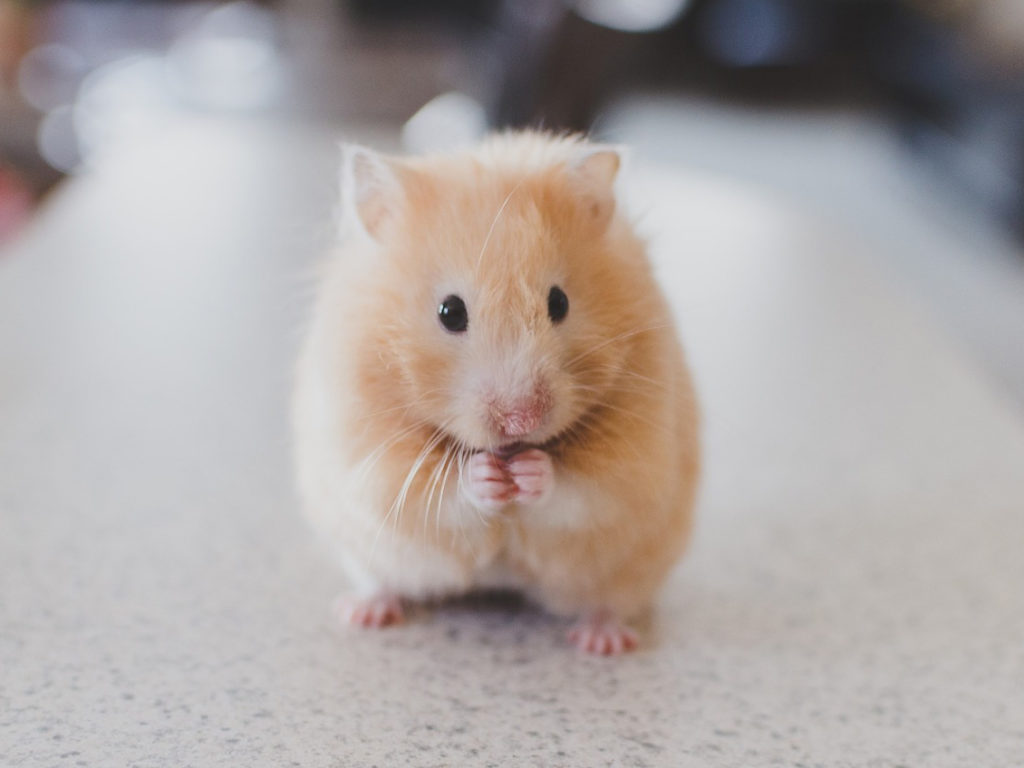Exotic Pets and Children

Depending on your family’s lifestyle, the responsibility of taking care of a cat or dog may be too time consuming. Left with the desire for a pet but time constraints that aren’t conducive to a cat or dog, some people think that getting a “pocket pet”, reptile, or another exotic animal might seem like the right solution.
Unfortunately, if you have small children exotic pets can be dangerous to your family’s health.
“Pocket pets” are small animals, often rodents that can fit into your pocket such as: hamsters, hedgehogs, mice, rats, and gerbils. Though they are slight larger, guinea pigs also fall under the “pocket pet” category. Other exotic pets that people often turn to for companionship include baby chickens, baby ducks, and reptiles such as lizards, snakes, iguanas, and turtles.
“If you have kids under the age of 5, you should be extremely careful if you elect to have exotic pets in your home,” states Dr. Sharman Hoppes, an assistant clinical professor at the Texas A&M University College of Veterinary Medicine and Biomedical Sciences. “Reptiles, ‘pocket pets’, baby chicks and ducks are not always in the best health when we acquire them, making these animals more prone to be shedding Salmonella.”
According to The Department of Human Health’s website, Salmonella is a bacteria that is passed from the feces of people or animals to other people or animals. Symptoms of a Salmonella infection include diarrhea, fever, and abdominal cramps 12 to 72 hours after exposure. In severe cases, the infected individual may be hospitalized for dehydration. Furthermore, if the infection spreads from the intestines into the blood stream and is not treated properly, Salmonella can cause death.
“As adults we tend to be more hygienic then children meaning we are less likely to contract Salmonella from exotic pets,” notes Hoppes. “Children however, are constantly putting their hands in their mouths and often do not was their hands after handling these animals, which puts them at greater risk for infection.”
In addition to lacking the proper hygiene practices of adults, kids are also more likely to get scratched or bitten by exotic pets.
“This is primarily due to the fact that children often do not know how to properly handle exotic pets. Not using the proper handling techniques for these animals can cause them stress, making them more likely to bite or scratch. These wounds create a point of entry for bacteria,” explains Hoppes.
Because of the risk of contracting a Salmonella infection from an exotic pet, it is important to make sure our animals are healthy when we get them and that we maintain our pet’s health.
“Anyone adopting exotic pets should take the animal to a qualified veterinarian for a wellness examination,” advises Hoppes. “Make sure your animal is healthy and not under stress from lack of proper care and poor nutrition. Stressed animals are more prone to bacterial infections.”
“Not all veterinarians are equipped to treat exotic pets,” adds Hoppes. “If your veterinarian is not able to care for your pet, ask for a referral to one who can.”
Once you find a veterinarian that treats exotic animals, Hoppes recommends asking them about the proper husbandry and nutrition for your pet.
“Animal husbandry refers to the proper way to take care of your species of animal. Animal husbandry includes how to house your pet properly, and special needs they may have as far as temperature, humidity, and lighting. Proper nutrition includes type of food or diet, how frequently to feed, and the amount that should be fed,” explains Hoppes.
Making sure your pet maintains good health and employing proper animal husbandry and nutrition can help reduce the risk of the animal carrying an infection, and thus lessen you and your family’s chances of contracting an illness from your exotic pet.
To further reduce the chance of infection from exotic pets, Hoppes recommends the following:
- Always wash your hands and your child’s hands after handling an animal.
- Children handling pets should be under constant supervision.
- Keep the animals out of your kitchen and bathroom. (Don’t let your iguana soak in the sink or bathtub)
- Do not let your exotic pet have free roam of your house; this is dangerous for both you and them.
- Teach your children to avoid approaching exotic animals outdoors and avoid bringing exotic animals found outdoors into your home.
If you have young children under five years of age, having exotic pets can be risky to your child’s health. If you choose to have an exotic pet, make sure your animal maintains good health and that you employ the proper precautions to reduce the risk of infection.
Pet Talk is a service of the College of Veterinary Medicine & Biomedical Sciences, Texas A&M University. Stories can be viewed on the Web at vetmed.tamu.edu/news/pet-talk. Suggestions for future topics may be directed to editor@cvm.tamu.edu.
Angela G. Clendenin
Director, Communications & Public Relations
Ofc – (979) 862-2675
Cell – (979) 739-5718


